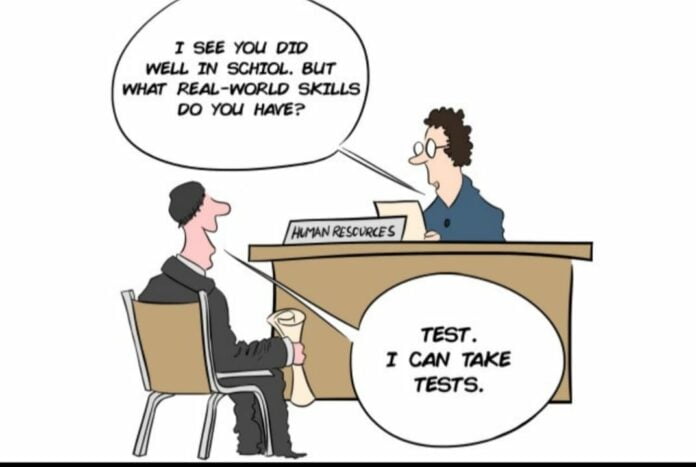Dear Beamers,
Greetings! The pressing issue of Nigeria’s youth population unemployment is no longer news and demands immediate attention. With the nation’s largest demographic group facing limited job opportunities and an uncertain future, it is crucial to delve into the challenges and potential solutions aimed at tackling this issue head-on. Immerse yourselves in the rhythm of transparency as our newsletter unfolds to address this critical matter in our dear nation.
In today’s fast-paced job market, the problem of youth unemployment is a big issue for young professionals worldwide. It hampers their career opportunities and dampens their hopes for a secure and fulfilling future. Nigeria, being Africa’s most populous country, is facing this challenge, especially because individuals aged 15 to 35 make up a significant part of its workforce.
Regrettably, numerous young Nigerians face unemployment despite their energy and potential. The ongoing high youth unemployment rate not only hampers personal and professional growth but also has broader social and economic implications for the country. Urgent attention and practical measures are needed to empower the future workforce and address this pressing issue.
Several factors contribute to this unfortunate situation, with a significant cause being the disparity between job opportunities and the increasing number of young people entering the labor market annually. The challenge is exacerbated by a growing population and limited employment options, leaving young individuals struggling to secure meaningful work.
According to Salami Ridwan, a trader and fashion entrepreneur,
“This whole COVID-19 thing hit hard, and a lot of people lost their jobs because of lockdowns and restrictions. Now, every year, we get thousands of new graduates entering a job market that’s already packed with people looking for work. The main problem is not just that there are more people, but there aren’t enough jobs. If someone doesn’t leave their job, retire, or get fired, chances of finding a new job is very low or impossible.”

Another pivotal cause of youth unemployment stems from the mismatch between skills acquired through education and those demanded by employers. Companies often dismiss young professionals due to perceived lack of experience, creating a significant barrier to entry for many.
This trend can be particularly frustrating for young job seekers as it hinders their chances of gaining valuable first-hand work experience. Graduates, entering the job market without the necessary skills or experience for available positions, often find themselves caught in a cycle of high underemployment or complete joblessness.
It is crucial to understand that the lack of employment opportunities for youth doesn’t come without its consequences in society. Unemployment leads to numerous unfavorable experiences. A prevalent consequence is depression and anxiety. The mental health implications of unemployment are profound, with individuals grappling with feelings of worthlessness and hopelessness. These conditions can impede motivation, self-confidence, and perseverance in job searches.
Additionally, youth unemployment and poverty share a cyclical relationship. Unemployment diminishes financial independence, making it challenging for young professionals to break free from poverty. Conversely, poverty restricts access to education, skill development, and work prospects, perpetuating a never-ending cycle of economic disadvantage. The absence of financial resources and social mobility further compounds the challenges faced by young professionals seeking stable and fulfilling employment prospects.
Understanding these root causes and potential challenges is crucial for developing effective strategies to address youth unemployment in Nigeria. Over the years, the Nigerian government has implemented various programs and policies that play a crucial role in tackling the issue of youth unemployment in the country.

Alao Damilare, a political enthusiast, believes the government has made conscious efforts over the years to reduce the number of unemployed youths on the streets through various programs and initiatives. According to his perspective,
“The government is taking steps to combat youth unemployment, with initiatives such as N-Power offering job opportunities, skills development, and entrepreneurship training for graduates across sectors like agriculture, healthcare, teaching, and technology. The goal is to equip young Nigerians with practical skills, fostering self-reliance and positive contributions to the economy.”
Despite the efforts of the government and various organizations through initiatives and programs to address unemployment in Nigerian society, the increasing rate suggests a need for different approaches and initiatives to adequately tackle this prevalent circumstance.
A viable option would be adopting practices that have shown positive results in tackling unemployment in developed countries. These nations have implemented advanced strategies, contributing to the increasing immigration rates they record yearly. Learning from these approaches could provide valuable insights for addressing unemployment challenges in Nigeria.
According to Babalola Sodiq, an educator,
“Nigeria needs to pay attention to what other countries are doing right in handling youth unemployment. Take Finland, for instance – they’ve got this Youth Guarantee program. If you’re under 25 and out of a job, within three months, you’re guaranteed either a job, internship, or a shot at education. This move not only slashes youth unemployment but also keeps young minds from being jobless for too long. It’s a solid approach that Nigeria could really learn from in dealing with our own youth unemployment situation.”
Entrepreneurship education is another crucial element in fostering employment opportunities for young people. It promotes creativity, innovation, and self-reliance among students. Internships and apprenticeships have played a significant role in bridging the gap between theoretical learning and practical experience. These opportunities enable students to apply their knowledge in real-world settings, acquiring valuable workplace skills in the process.

Akorede Smart suggests that promoting entrepreneurship principles and assisting budding entrepreneurs can cultivate an entrepreneurial culture, leading to job creation in Nigeria.
“Access to funding is a critical hurdle for young entrepreneurs launching businesses, often lacking the financial resources needed. The government should establish specific loan schemes aimed at supporting youth-led startups. Mentorship programs are equally essential, providing guidance on various business aspects from experienced mentors. This includes market research, product development, marketing strategies, financial management, and scaling operations.” He said.
He added, “Networking opportunities are key, allowing young entrepreneurs to connect with industry experts, successful peers, and potential partners, fostering collaborations, joint ventures, and knowledge sharing to significantly enhance their chances of success.”
Indeed, government efforts alone cannot entirely address the challenges of youth unemployment. Various limitations need careful consideration. Delayed disbursement of funds, lack of monitoring mechanisms, and inadequate coordination between different agencies are potential hindrances that could impede the effective implementation of initiatives.
Addressing these challenges will necessitate sustained efforts from both government bodies and other relevant stakeholders, including private sector organizations, non-governmental organizations (NGOs), and civil society groups. Collaborative efforts are essential to work towards comprehensive solutions that extend beyond short-term measures, fostering a more effective and lasting impact on the issue of youth unemployment.
Youth unemployment presents considerable challenges and potential consequences for both individuals and society. Yet, by implementing practical solutions, we can strive towards a brighter future for young professionals. Let us join hands in addressing youth unemployment, creating a world where the talents and aspirations of young people can flourish, fueling innovation and prosperity for all.




